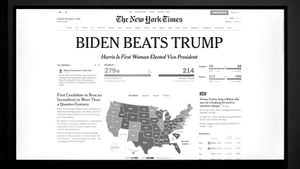International relations are often characterized by complex webs of diplomacy, power dynamics, and shifting allegiances. Recently, the focus has primarily been on how the Trump administration might reshape these relationships, especially with respect to pressing global affairs such as the war in Ukraine and energy policies.
During Donald Trump's tenure, the U.S.'s stance on NATO and relationships with European allies became significantly more transactional—a noticeable shift from previous administrations' practices. Trump’s reliance on the EU and the UK to absorb the costs of supporting Ukraine is particularly telling of his approach. He argues for burden-sharing, indicating his belief these nations should take on greater financial responsibility for military support, which could allow him to present this as him putting "America first" without increasing the U.S. treasury’s expenditures.
Reports indicate this dependence on European financers is not merely political posturing but also functional. Trump's strategy could potentially provide the necessary military supplies to Ukraine without requiring additional U.S. funding. Analysts suggest it could even open avenues for Trump to negotiate favorable deals for American commerce and strategy.
The dynamics of Trump’s foreign policy are highlighted through his negotiations about Ukraine’s sovereignty amid its conflict with Russia. Many world leaders, including those from Moscow and Kyiv, are scrambling to gain clarity about Trump's promises and intentions. He has claimed he could end the Russo-Ukrainian war within one day, but skepticism abounds about how he would achieve this and what concessions he might demand from Ukraine.
Within Ukraine, President Zelensky has already emphasized the nation’s rich deposits of strategic minerals—essential for various U.S. technologies—during pre-election talks with Trump. This could be seen as leveraging Ukrainian resources to gain favor and support from the U.S., potentially making them more pivotal to U.S. interests moving forward.
At the same time, Trump’s commitment to NATO remains under scrutiny; he previously suggested withdrawing from various security obligations if member countries did not meet their spending commitments, which has left many European leaders unsure about the reliability of U.S. support. This unpredictability might push allied nations to hedge their bets by bolstering their own military capacities.
Critics have raised the alarm about what could happen if Trump bypasses traditional foreign policy channels, favoring more direct, personal negotiations with world leaders, mimicking business deals. This method's staggering impacts on international diplomacy were noted by experts, who caution it could deteriorate the established rules-based international order.
Looking beyond Europe, Trump's approach toward China and Russia will also likely involve confrontation mixed with opportunistic diplomacy. Questions arise whether Trump’s inclination to treat foreign policy as akin to negotiating business contracts will yield stability or volatility on the global stage.
Another layer of this complex narrative involves the incoming Biden administration, which now faces the challenge of “Trump-proofing” its own policy legacy. The urgency surrounding this task is evident as the Biden administration seeks to solidify allies against burgeoning authoritarianism, particularly from adversaries like China and Russia, whom they perceive as leveraging the Trump era’s tumult to undermine American influence.
Meanwhile, the recent climate finance agreement reached at COP29 is being touted as significant for developing nations striving for low-carbon economies. Critics, especially from environmental factions, decry the deal as insufficient, arguing it does not adequately address the underlying crises of climate justice. The negotiations revealed deep divisions and dissatisfaction among campaigners awaiting genuine commitments to the climate agenda.
There also appears to be tension around Saudi Arabia's alteration of COP29's text, potentially jeopardizing the integrity of the summit's negotiations. This tweak signals larger issues about trust and collaboration within these multilateral forums.
The alignment of foreign policy and climate action presents challenges for the U.S. and its allies, especially when leaders like Trump wax and wane with commitment to global initiatives like the Paris Agreement. The question of whether the U.S., under Trump or his influences, will pivot toward isolationist tendencies or rekindle international collaboration remains contentious.
Critics warn of shifting allegiances under Trump's influence, potentially sidelining Israel's interests as he could call for compromises beneficial to Russia or other states. The fallout could engender greater instability not only across Ukraine but within the broader Middle Eastern narrative, particularly concerning the conflict between Israel and Palestine.
With the outcome of Trump’s international relations still very much dependent on the forthcoming electoral battles, analysts believe the nature of alliances could shift dramatically, with European states possibly seeking to carve out their own independent pathways amid uncertainties surrounding U.S. commitments.
Above all, the American public's perception of international relations continues to evolve, influenced by growing isolationist sentiment among voters, particularly those within Trump's base. The real challenge leading up to the next presidential election will be articulately addressing Americans’ anxieties about global interdependence, security, and the country's role on the world stage.
This moment of flux suggests the potential for unprecedented political and diplomatic shifts within America's foreign policy, with repercussions reverberations felt internationally. Whether these changes will establish enduring peace or merely additional precursors to chaos remains largely speculative.



